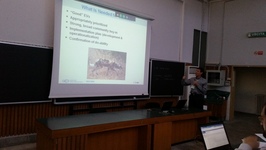
Gary Geller outlining the characteristics of “good” essential biodiversity variables (EBVs).
|
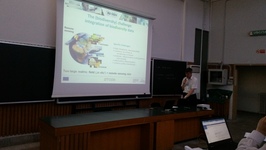
C. Hauser about EVBs and the need for data integration.
|
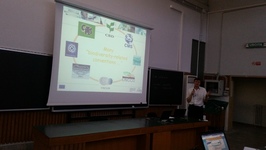
C. Hauser about EVBs and their role for biodiversity conventions.
|
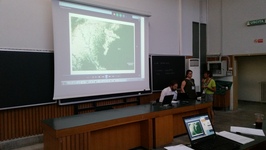
N. Cordoba taking questions after her report on EBVs discussed in Columbia.
|
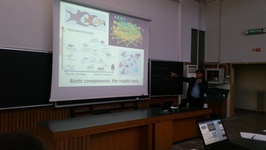
A. Provenzale discussing the complexity of the ecosystem and the challenge to identify essential variables.
|
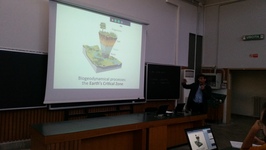
A. Provenzale underlined the importance of the Earth's critical zone.
|
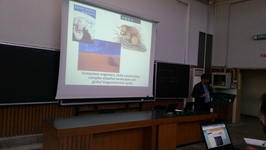
A. Provenzale commenting on ecosystem engineers and the resulting complex adaptive landscape.
|
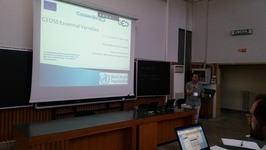
S. Hales at the start of his presentation on EVs for Health.
|
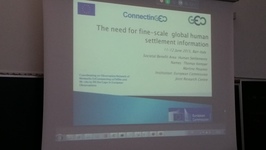
The presentation on EVs for human settlements was given remotely by Thomas Kemper.
|
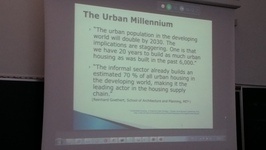
Thomas Kemper reflected on an enormous challenge for humanity resulting from the fact that urban population is expected to douple in the next 20 years requiring within 20 years as much building of urban environment as was built in the last 6,000 years.
|
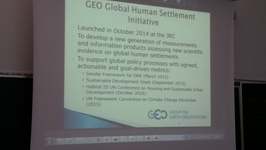
Considering the challenge of rapid urbanization, the GEO Global Human Settlement Initiative can help to ensure availability of relevant observations.
|

The relationship between GDP and space available per capital is a complex one, and at the top, the higher GDP per capita, the larger the space available per person.
|





